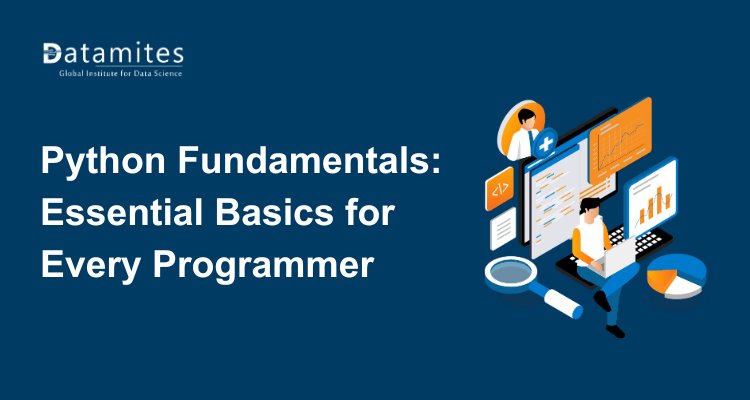How to Become a Data Analyst in Saudi Arabia?

As the demand for data-driven insights continues to rise in Saudi Arabia, pursuing a career as a data analyst opens up exciting opportunities for individuals passionate about extracting valuable information from vast datasets. As a data analyst in Saudi Arabia, you will play a crucial role in helping organizations make informed decisions and optimize their operations.
According to the Bureau of Labor Statistics, employment of computer and information research scientists (which includes data analysts) is projected to grow 19% from 2020 to 2030, much faster than the average for all occupations. With Saudi Arabia’s booming economy and digital transformation initiatives, becoming a data analyst in this dynamic environment offers a promising career path with ample room for professional growth and innovation.
What is Data Analytics?
In order to find significant insights, patterns, and trends that might help business decision-makers, massive volumes of data must be examined and analyzed. This process is known as data analytics. It involves the use of various statistical and mathematical techniques to identify correlations, outliers, and dependencies within the data.
The data analytics market size is anticipated to reach USD 303.4 Billion by the year 2030 at a CAGR rate of 27.60% according to a Market Research Future report. Data analytics enables businesses to gain a deeper understanding of their customers, identify market trends, enhance operational efficiency, mitigate risks, and drive innovation. It plays a crucial role in transforming raw data into meaningful and actionable information that empowers organizations to make data-driven decisions and stay competitive in today’s data-driven world.
Why a Data Analytics career in Saudi Arabia?
A data analytics career in Saudi Arabia offers several advantages, including competitive salaries. The demand for data analytics professionals has been steadily increasing in Saudi Arabia as organizations recognize the importance of leveraging data to gain a competitive edge.
When it comes to salary, data analytics professionals in Saudi Arabia can expect competitive remuneration packages. Salary ranges can be affected by things including experience, education, industry, and firm size. But according to the PayScale survey, the annual wage for a data analyst in Saudi Arabia starts at SAR 95,873.
In Saudi Arabia, major cities like AL Jubail, AL Khobar, Jeddah, Medina and Riyadh earn high-paying salaries for Data analytics roles.
- The salary of a data analyst in AL Jubail ranges from SAR 207099 per year according to a Glassdoor report.
- The salary of a data analyst in Jeddah ranges from SAR 180,527 per year according to an Economic Research Institute report.
- According to a survey from the Economic Research Institute, a data analyst in Riyadh can earn up to SAR 225,423 annually.
Why is Data Analytics in demand in Saudi Arabia?
Data Analytics is in high demand in Saudi Arabia across various industries due to several factors:
- Education: Saudi Arabia has been making significant investments in its education sector, focusing on improving the quality of education and research. Data analytics plays a crucial role in analyzing student performance, tracking educational trends, and identifying areas for improvement. Data analytics Course in Saudi Arabia equip individuals with the necessary skills to extract insights from educational data and contribute to Saudi Arabia’s educational advancement.
- Retail: In the retail industry of Saudi Arabia, data analysts collaborate with Al Khobar to leverage data analytics and gain valuable insights into consumer behaviour, preferences, and purchase patterns. By analyzing this data, retailers can optimize inventory management, personalize marketing campaigns, and enhance the overall customer experience to meet the demands of the evolving digital landscape.
- Manufacturing: In the manufacturing sector of Saudi Arabia, data analysts in Medina leverage their expertise in collaboration with companies to utilize data analytics. This helps manufacturers optimize operations, improve production efficiency, and reduce costs by analyzing data from sensors, machinery, and production processes. By identifying bottlenecks, predicting equipment failures, and optimizing supply chain management, data analysts contribute to the growth and success of the manufacturing industry in Saudi Arabia.
- Finance: The finance industry in Saudi Arabia is becoming increasingly data-driven as financial institutions aim to enhance risk management, fraud detection, and customer experience. Data analytics enables financial institutions to analyze vast volumes of transactional data, detect anomalies, and identify potential fraud. Additionally, data analytics helps financial institutions understand customer behaviour, personalize financial services, and make data-driven investment decisions.
- Healthcare: The healthcare industry in Saudi Arabia is prioritizing the adoption of data analytics to improve patient care, optimize resource allocation, and enhance healthcare outcomes. By analyzing patient data, medical records, and clinical trials, healthcare providers can identify patterns, trends, and potential risks. Reputable data analytics institutes in Saudi Arabia provide the necessary training and skills to professionals, enabling them to effectively utilize data analytics in the healthcare industry.
In summary, the demand for data analytics in Saudi Arabia across the education, retail, manufacturing, finance, and healthcare industries is driven by the need to leverage data to make informed decisions, improve efficiency, enhance customer experience, and drive overall growth and competitiveness. By harnessing the power of data analytics, organizations can unlock valuable insights and gain a competitive edge in their respective industries.
How to Become a Data Analyst in Saudi Arabia?
To become a Data Analyst in Saudi Arabia, you can follow these general steps:
- Obtain a relevant education: Pursue a bachelor’s degree in a field such as Data Science, Statistics, Mathematics, Computer Science, or a related discipline. Some universities and institutions in Saudi Arabia offer specialized programs or courses in Data Analytics or Data Science.
- Develop strong analytical skills: Data Analysts need to have a strong foundation in analytical thinking and problem-solving. Focus on developing skills in data manipulation, statistical analysis, data visualization, and programming languages such as Python or R. Take advantage of online courses, tutorials, and resources to enhance your analytical skills.
- Gain practical experience: Seek internships, part-time jobs, or projects that allow you to apply your skills in real-world scenarios. Look for opportunities in companies, research institutions, or startups that emphasize data analytics. Practical experience will help you build a portfolio and demonstrate your abilities to potential employers.
- Live-project internship: Live project internships present valuable opportunities for professionals in the field of data analytics to acquire practical experience by utilizing their knowledge and skills to address real-world data challenges encountered by organizations.
- Resume Preparation– When crafting a resume for a data analytics role, it is crucial to showcase pertinent skills and experience. Prioritize technical skills, such as knowledge of data querying in SQL, proficiency with programming languages like Python and R, and familiarity with analytics programs like Tableau and Power BI.
- Stay updated with industry trends: New methods, devices, and technologies are continuously developed in the subject of data analytics, which is a topic that is continually growing. Stay updated with the latest industry trends, attend relevant conferences, webinars, and workshops, and engage with online communities to stay abreast of the advancements in the field.
- Obtain relevant certifications: Consider obtaining certifications in data analytics or related fields. Certifications such as Certified Analytics Professional (CAP), Microsoft Certified: Azure Data Scientist Associate or SAS Certified Data Scientist can enhance your credentials and demonstrate your expertise to potential employers.
- Polish your communication skills: Effective communication is crucial for data analysts. Work on honing your capacity to communicate technical and non-technical stakeholders with complicated data findings in a clear and simple manner. Strong communication skills will help you convey insights and recommendations effectively.
- Seek job opportunities and internships: Explore job portals, company websites, and professional networks to find data analyst job openings in Saudi Arabia. Make sure to emphasize your relevant abilities and experiences in both your CV and cover letter. Consider reaching out to recruitment agencies or connecting with professionals in the industry for potential opportunities.
- Prepare for interviews: Research common interview questions for data analyst roles and prepare your responses. Practice presenting your past projects or case studies that demonstrate your analytical skills and problem-solving abilities. Be ready to showcase your technical knowledge and highlight your passion for data analysis.
Remember, the specific requirements and job market in Saudi Arabia may vary, so it’s essential to adapt these steps to the local context and stay informed about the specific requirements and qualifications sought by employers in the region.
Read these articles:
- Become a Data Analyst in Switzerland
- Become a Data Analyst in Malaysia
- Become a Data Analyst in Thailand
How is DataMites providing Certified Data Analyst Course in Saudi Arabia?
DataMites is a highly esteemed global training institute with a strong international presence, renowned for its comprehensive data analytics training in Saudi Arabia. DataMites also provides wide courses such as Artificial Intelligence, Data Science, Python, Deep Learning and MLOps etc. Among its notable offerings is the Certified Data Analyst Course in Saudi Arabia, providing students with a distinctive opportunity to gain profound expertise and hands-on skills in the ever-evolving domain of data analytics. Here’s a general outline of how such institutes may provide certified data analyst courses:
Ashok Veda and faculty: DataMites is privileged to have Ashok Veda, a globally recognized AI expert, as a part of their team. With a remarkable 19-year track record in analytics and data science across diverse industries, including finance, healthcare, and technology, Ashok Veda brings extensive experience and a passion for innovation. As a distinguished member of the faculty, Ashok Veda leads projects that utilize cutting-edge AI techniques to extract valuable insights and solve complex business problems. With a strong commitment to providing top-notch training and staying ahead in Artificial Intelligence advancements, DataMites ensures students receive exceptional guidance from Ashok Veda.
Industry-relevant Tools: DataMites provides students with access to industry-relevant tools such as Excel, SQL, Tableau, and Power BI. Through practical exercises and real-world projects, students gain hands-on experience and proficiency in using these tools, ensuring they are equipped with the essential skills required in the industry.
Project and Internship Opportunities: DataMites offers students valuable chances to engage in projects and internships, enabling them to acquire practical experience and apply their skills in real-world situations. These opportunities greatly enhance their comprehension of data analytics as they tackle industry-specific challenges and work on practical projects.
Flexibility: DataMites recognizes the importance of flexible learning and provides courses that cater to diverse schedules. They offer online data analytics training in Saudi Arabia and self-paced learning options, enabling participants to access course materials and lectures at their convenience. This flexibility empowers learners to effectively manage their time and customize their learning experience with DataMites.
Course Curriculum: DataMites would have developed a comprehensive curriculum for their certified data analyst course, covering essential concepts, techniques, and tools used in data analysis. The curriculum may include topics such as data manipulation, statistical analysis, data visualization, machine learning, and practical case studies.
Hands-on Projects and Assignments: To enhance practical learning, DataMites may provide hands-on projects and assignments to students. These projects help participants apply their knowledge and skills to real-world scenarios, enabling them to gain practical experience in data analysis.
Certification: Upon successful completion of the course and any associated assessments, DataMites provide participants with an internationally recognised IABAC certification at the end of the certified data analyst program. Data Analytics Certification in Saudi Arabia can serve as a validation of their skills and knowledge in data analytics.
Affordable fees: DataMites places a strong emphasis on making quality education in the field of data analytics accessible to all by offering courses at affordable fees. They provide cost-effective options that maintain exceptional content standards, ensuring a rewarding and enriching learning journey for students. The Certified Data Analyst Training fee in Saudi Arabia is available at a range of SAR 3,149 to SAR 6,000 for students to choose from.
Certified Data Analyst Course

Summary
In conclusion, As a data analyst specializing in Saudi Arabia, it is evident that data analysis plays a crucial role in understanding and driving key insights in the country. By harnessing the power of data, organizations in Saudi Arabia can make informed decisions, identify patterns, and uncover trends that contribute to their success. Moreover, the advancements in technology and the increasing availability of data have opened up new opportunities for data analysts to extract meaningful information and provide valuable recommendations. Data Analytics Training Courses in Saudi Arabia and institutes play a vital role in equipping professionals with the necessary skills to excel in this field and meet the growing demand for data analysis expertise in Saudi Arabia. training institutes, will become increasingly significant in shaping the country’s economic growth, optimizing resource allocation, and enhancing overall efficiency across various sectors.
Refer the following articles:
- Become a Data Analyst in United States
- Become a Data Analyst in Canada
- Become a Data Analyst in South Africa
Data Science vs Data Analytics

Data Scientist vs Data Engineer vs ML Engineer vs MLOps Engineer






